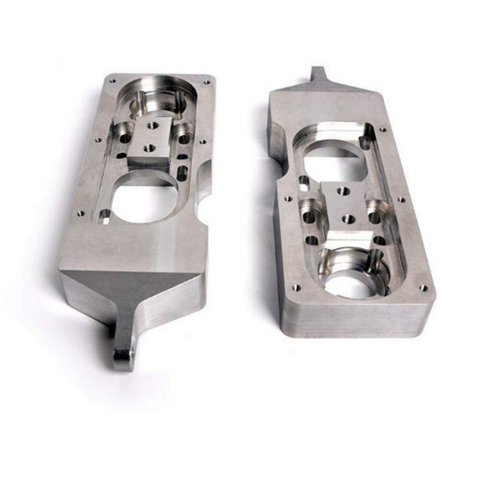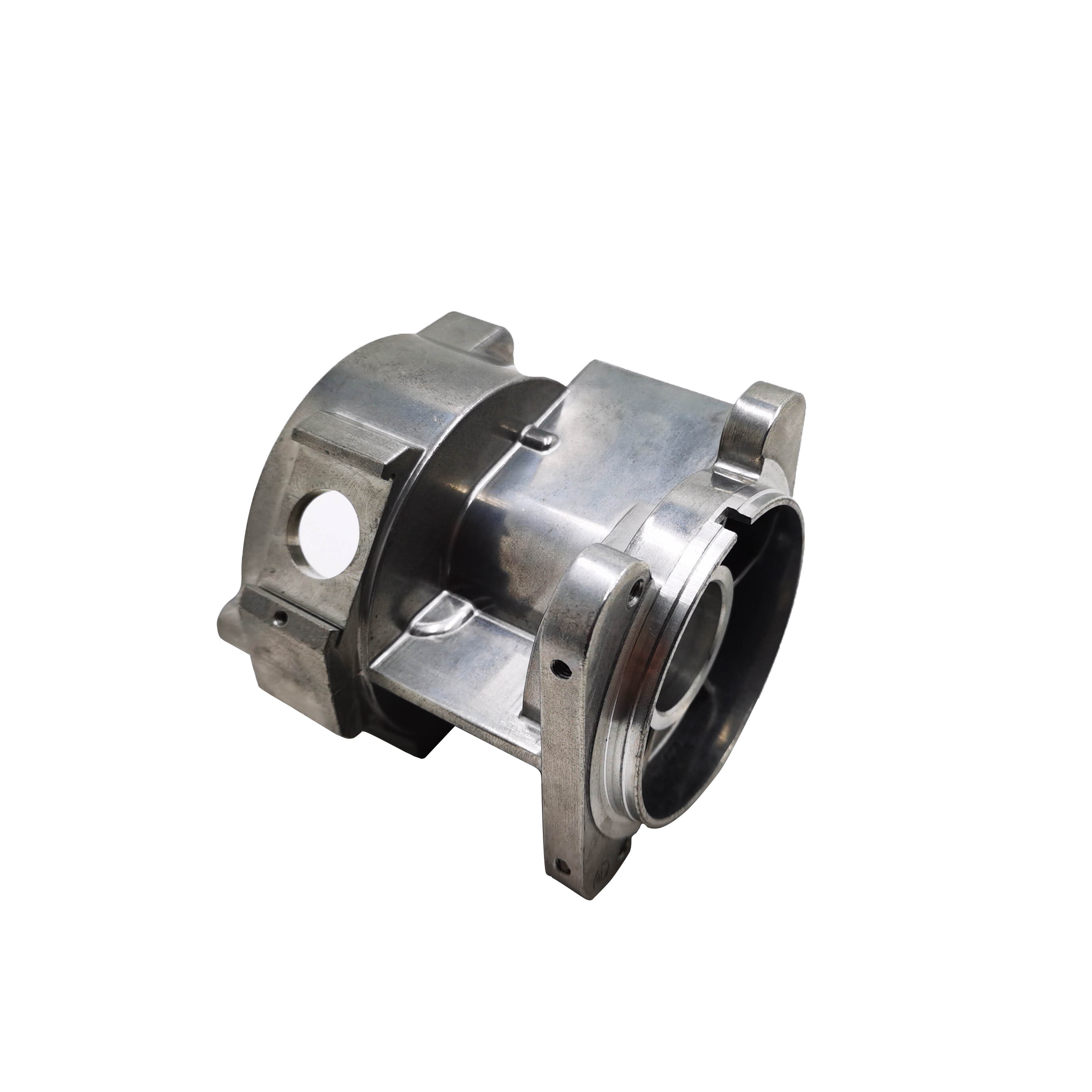How Light Weight Aluminum Foundries Contribute to Different Industries: A Thorough Review
Light weight aluminum foundries offer as vital distributors throughout numerous sectors, consisting of vehicle, aerospace, construction, and electronic devices. They produce parts that are not just lightweight however additionally resilient, boosting the performance of numerous items. With innovative spreading techniques and a dedication to sustainability, these factories are adapting to meet developing sector demands. As they introduce, the impact of aluminum spreadings on various applications increases essential questions concerning the future of manufacturing. What exists ahead for this important sector?
The Role of Light Weight Aluminum Foundries in the Automotive Sector
As the auto market significantly accepts lightweight products to boost fuel efficiency and efficiency, aluminum shops play an important duty in this advancement. These facilities focus on the manufacturing of light weight aluminum castings, which are essential parts in modern-day automobiles. By offering high-strength, light-weight components, aluminum factories enable makers to decrease the overall weight of lorries, inevitably bring about enhanced fuel economic situation and decreased discharges.
Light weight aluminum's resistance to rust additionally improves car longevity, making it an eye-catching choice for automakers. Factories use advanced methods such as die casting and sand spreading to produce accurate and elaborate parts, making sure that they fulfill strict market standards. In addition, the capability to recycle aluminum successfully contributes to a much more lasting production procedure. As the automobile sector remains to innovate, aluminum shops will certainly remain essential in providing the materials essential for the following generation of vehicles, sustaining both performance and environmental goals.

Aerospace Applications of Light Weight Aluminum Castings
Aluminum spreadings are integral to the aerospace market, offering a combination of light-weight strength and durability that is important for airplane performance. These castings are used in different elements, such as engine parts, structural frameworks, and landing gear, where weight reduction is vital for gas effectiveness and overall security. The convenience of light weight aluminum enables complicated geometries that boost aerodynamic effectiveness while maintaining architectural honesty.
Additionally, innovations in casting technologies have actually boosted the accuracy and surface finish of light weight aluminum parts, minimizing the requirement for substantial post-processing. This efficiency not just speeds up production timelines however likewise decreases expenses, making aluminum an attractive choice for manufacturers. The rust resistance of light weight aluminum guarantees durability and dependability in extreme operating environments, further developing its role in aerospace applications. As the sector progresses, aluminum spreadings continue to be a vital product, driving advancement and sustaining the advancement of next-generation aircraft.
Construction Sector Technologies Via Aluminum
The building market has significantly embraced light weight aluminum because of its lightweight residential properties and versatility, paralleling its successful applications in aerospace. Advancements in aluminum layout have actually resulted in stronger, a lot more efficient frameworks, enabling home builders and engineers to check out new opportunities. The product's resistance to corrosion and low upkeep requires make it specifically appealing for both household and industrial projects.
Light weight aluminum's convenience facilitates the production of elaborate styles, allowing for visual improvements that were formerly tough with typical materials. Prefabrication strategies have likewise developed, using light weight aluminum to reduce building and construction time and expenses considerably. Furthermore, the energy performance of light weight aluminum systems-- such as home window structures and roof-- adds to lasting structure techniques, aligning with modern ecological requirements. As the building industry remains to embrace these innovations, light weight aluminum's role is expected to increase, driving more innovation and adding to the growth of durable facilities.
Electronics and the Need for Lightweight Light Weight Aluminum Parts
With the quick improvement of technology, the need for light-weight light weight aluminum components in the electronics sector has risen. As devices become more mobile and portable, suppliers look for materials that use both durability and weight reduction. Aluminum, with its outstanding strength-to-weight proportion, has actually become a preferred option for components such as cases, warmth sinks, and structural assistances.
The usage of light weight aluminum not just boosts item efficiency however additionally adds to energy efficiency, as lighter gadgets require much less power during operation. In addition, light weight aluminum's exceptional conductivity makes it optimal for electronic applications, ensuring reliable heat dissipation and reducing the danger of getting too hot.
As consumer choices shift towards sleek and lightweight gadgets, light weight aluminum foundries play a necessary function in satisfying the developing needs of the electronic devices market (Aluminum Foundry). Their ability to produce top notch and exact light weight aluminum parts supports advancement, enabling suppliers to push the borders of design and functionality
Lasting Practices in Light Weight Aluminum Foundries
As the electronic devices sector progressively focuses on sustainability, aluminum factories are adapting their practices to align with these ecological objectives. browse around this site Numerous shops are executing reusing programs that redeem light weight aluminum scrap, considerably reducing the requirement for basic materials and minimizing waste. By utilizing energy-efficient modern technologies, these facilities are lowering their carbon impact; as an example, utilizing electric furnaces as opposed to conventional gas-fired ones can result in significant energy savings.
Furthermore, aluminum shops are spending in water preservation procedures, such as closed-loop systems that recycle water used in cooling processes. These techniques not only reduced water intake but also mitigate the environmental impact related to wastewater discharge. Numerous shops are discovering sustainable energy resources, such as solar and wind power, to meet their energy requires sustainably. Through these initiatives, aluminum foundries exhibit a dedication to environmental stewardship while remaining to fulfill the needs of the electronics industry.
Future Trends in Light Weight Aluminum Shop Technologies
Arising innovations are positioned to change light weight aluminum foundries, boosting efficiency and product quality while advancing sustainability efforts. Innovations such as artificial intelligence and maker knowing are expected to enhance manufacturing procedures by predicting devices failings and improving source allocation. The combination of advanced robotics will certainly improve operations, reducing labor costs and reducing human mistake.
Additive manufacturing, or 3D printing, is likewise obtaining top article grip, enabling the manufacturing of complicated geometries that were previously unattainable with typical techniques. This shift might bring about substantial material savings and reduced waste. In addition, smart foundries using IoT (Net of Things) innovations will certainly make it possible for real-time surveillance and data evaluation, promoting positive decision-making.
Lastly, the fostering of cleaner melting modern technologies and reusing strategies will additionally lower the ecological impact of aluminum factories, making them a lot more sustainable. Jointly, these fads indicate a future where aluminum foundries can run with higher effectiveness and duty.
Often Asked Questions
What Are the Environmental Influences of Aluminum Foundries?

Exactly How Do Foundries Make Sure Top Quality Control in Aluminum Spreading?
Factories ensure quality control in light weight aluminum spreading by executing strenuous inspection processes, utilizing innovative modern technology, carrying out routine product screening, and sticking to market requirements, therefore maintaining uniformity and integrity in their ended up items. aluminum casting.
What Is the Ordinary Life Expectancy of Light Weight Aluminum Cast Components?
The typical life expectancy of aluminum cast parts commonly ranges from 10 to half a century, depending upon factors such as environmental conditions, usage, and maintenance. Appropriate treatment can considerably improve their sturdiness and performance gradually.
Exactly How Are Light Weight Aluminum Alloys Selected for Certain Applications?
Aluminum alloys are picked based upon factors such as toughness, rust resistance, weight, and thermal conductivity. Designers examine the particular needs of applications to establish one of the most link appropriate alloy for ideal efficiency and resilience.
What Are the Security Regulations for Aluminum Foundry Employees?
Safety and security regulations for light weight aluminum factory workers consist of individual protective devices requireds, ventilation demands, exposure limitations to dangerous products, and protocols for managing molten metal. Conformity warranties worker safety and security and reduces health dangers connected with factory procedures.
As the auto market increasingly accepts lightweight products to improve fuel effectiveness and performance, light weight aluminum factories play a crucial duty in this advancement. As customer choices change towards light-weight and sleek gadgets, aluminum factories play a crucial duty in fulfilling the evolving demands of the electronic devices market. As the electronic devices industry significantly prioritizes sustainability, aluminum foundries are adapting their methods to line up with these environmental goals. Lots of factories are executing recycling programs that redeem light weight aluminum scrap, considerably reducing the demand for raw products and decreasing waste. Safety and security policies for light weight aluminum foundry employees consist of individual protective equipment requireds, air flow requirements, exposure restrictions to unsafe materials, and protocols for handling molten metal.